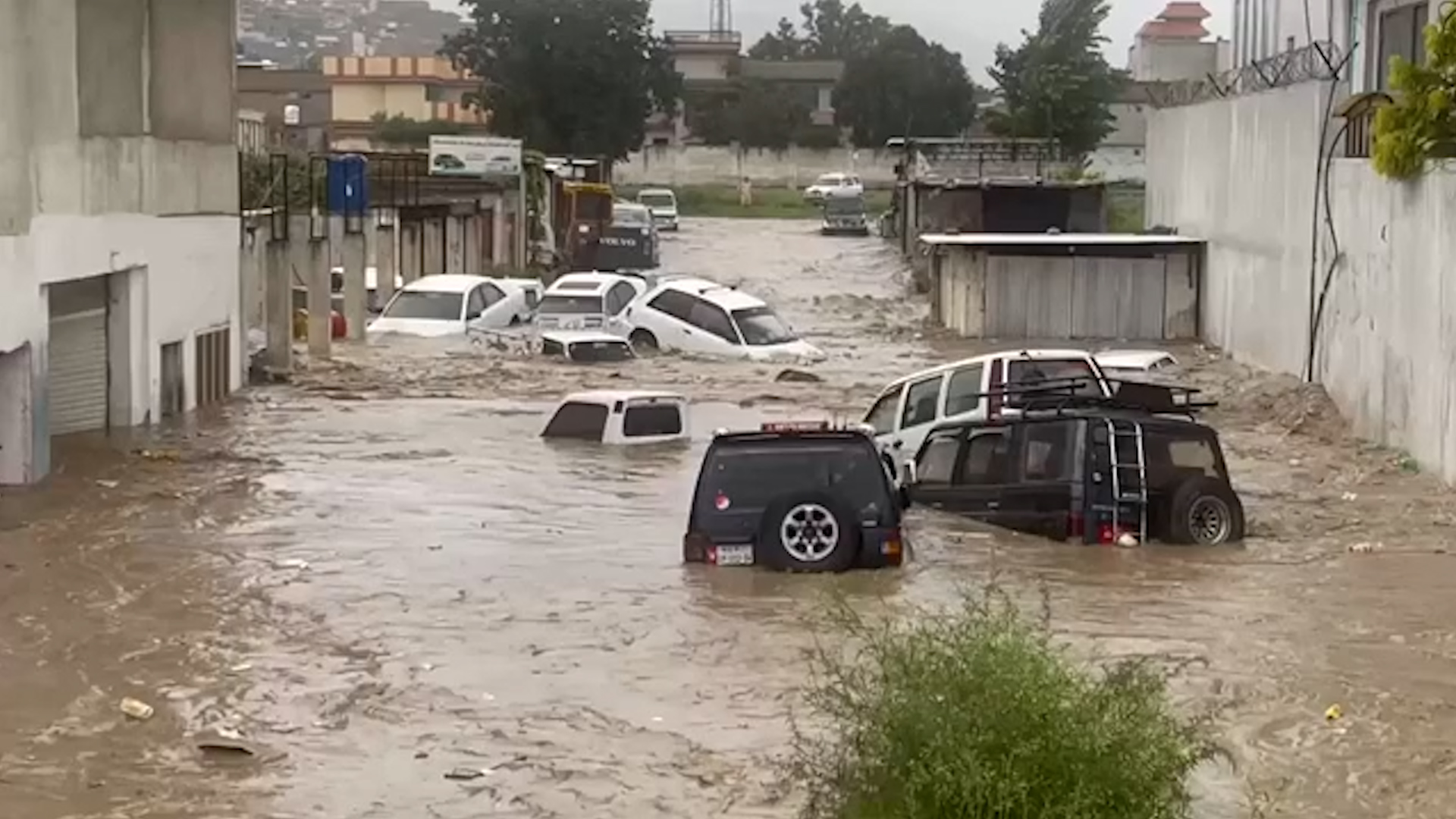Floods have devastated 33 million people in Pakistan, resulting in 1,456 injuries and 982 fatalities. The Shehbaz Sharif administration has turned to the Pakistan Army for assistance in relief and rescue efforts. According to Pakistan’s disaster management organisation, more than 3,000 km of roads, around 150 bridges, and almost seven lakh homes have been washed away or destroyed as a result of the flooding.

“At present, more than half of (the country) is under water and millions of people have been forced homeless as a result of flash flooding created by exceptional monsoon rains,” said Pakistani news website Dawn on Saturday morning.

Over 5.7 million people are also without food and shelter as a result of unprecedented rains.
The Khyber-Pakhtunkhwa, Balochistan, and Sindh provinces, where heavy rain has continued for a second day in a row and blocked off areas due to damaged roads and bridges, have experienced a “new wave of death and destruction,” according to The Tribune.
Crops and cattle are also damaged as part of the catastrophe.
According to news agency PTI, Sindh and Balochistan were the severely affected, and various locations along these regions’ train lines saw a suspension of service.
Due to poor weather, Pakistan International Airlines cancelled all of its Friday flights to Quetta, the capital of the Balochistan province.
According to news agency ANI, the Pakistani government has declared a “national emergency” and will now make a “flash plea” to the UN. There has already been $3 million set aside for the UN Central Emergency Response Fund.
The Tribune added that heavy rain warnings are still in effect as of Tuesday, August 30. The following week is expected to see more rain.
The calamity has been most devastating in the provinces of Sindh and Balochistan. Pakistan Railway has paused some operations, while Pakistan International Airlines has cancelled flights to Quetta, the capital of the Balochistan province.
According to the Dawn, Quetta and its surroundings are still underwater after a 36-hour rainstorm put an end to life as we know it and caused hundreds of families to lose their houses.
Because authorities were unable to restore pipelines that were washed away by floods in the Bolan river, the floods and storms have also contributed to a severe gas shortage.




















